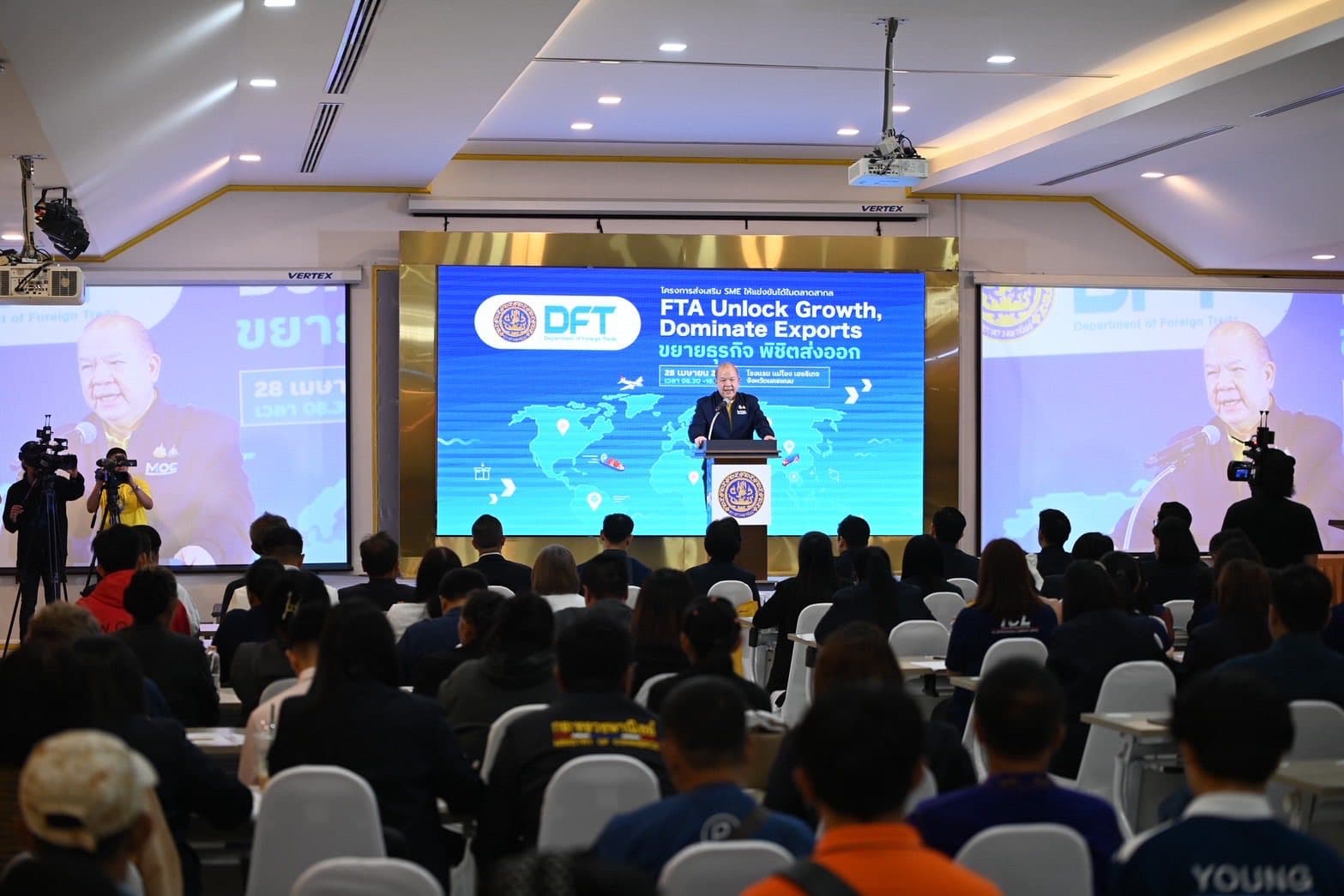Thailand’s 2025 economic growth has been forecast at 1.4% amid global instability and declining exports and tourism.
Burin Adulwattana, Managing Director and Chief Economist at Kasikorn Research Center, stated that prolonged uncertainty over US President Donald Trump’s trade policy is weighing on global trade, investment, and economic sentiment. The Organisation for Economic Co-operation and Development revised global growth for 2025 down to 2.9%, while U.S. growth was downgraded to 1.6%.
The U.S. dollar has weakened by over 8% since Trump’s return to office, while bond yields have risen. Despite inflationary pressure, the Federal Reserve is expected to remain cautious on interest rate decisions. Thailand’s Monetary Policy Committee is expected to cut interest rates once more this year.
The baht may appreciate to 32 per U.S. dollar over the next 3–6 months. Kasikorn Research revised its inflation forecast for Thailand down to 0.3%.
As the U.S. 90-day tariff suspension nears its July 9th deadline, negotiations with Thailand remain stalled. If the U.S. maintains its 10% tariff throughout 2025, Thailand’s exports are expected to grow just 0.5%, and GDP could reach 1.8%. However, if a 36% rate is applied, exports in the 3rd and 4th quarters would decline, and GDP may contract more than expected.
Thailand’s export sector, especially electronics, auto parts, and plastics, would be vulnerable. Domestic competition from imports is also expected to intensify. Imported consumer goods may account for over 30% of retail value this year.
Foreign tourist arrivals could drop for the first time in three years. Domestic car sales may decline by 1.7% year-on-year in the second half. Agricultural income is expected to shrink due to falling demand, weaker prices, and global competition.
Private sector financing remains weak. Loan demand is slowing. Banks remain cautious due to rising non-performing loans (NPLs), prompting debt restructuring and asset sales. Bank credit is forecast to decline by 0.6%, revised from 0.6% growth.
Thai corporate ESG activity has also slowed. Sustainable bond issuance has declined. Large firms still raise funds through project finance, while SMEs focus on short-term investments in solar energy, energy efficiency, or EVs.
To navigate uncertainties in the second half of 2025, the research center recommends the government focus on efficient spending. Short-term relief and long-term structural reforms are both essential. Immediate support should target domestic producers hit by U.S. tariffs, while restoring tourist confidence remains critical. Businesses are advised to preserve cash flow to withstand prolonged volatility.
Source: NNT
Kasikorn Research Lowers GDP Forecast Due to US Tariffs



